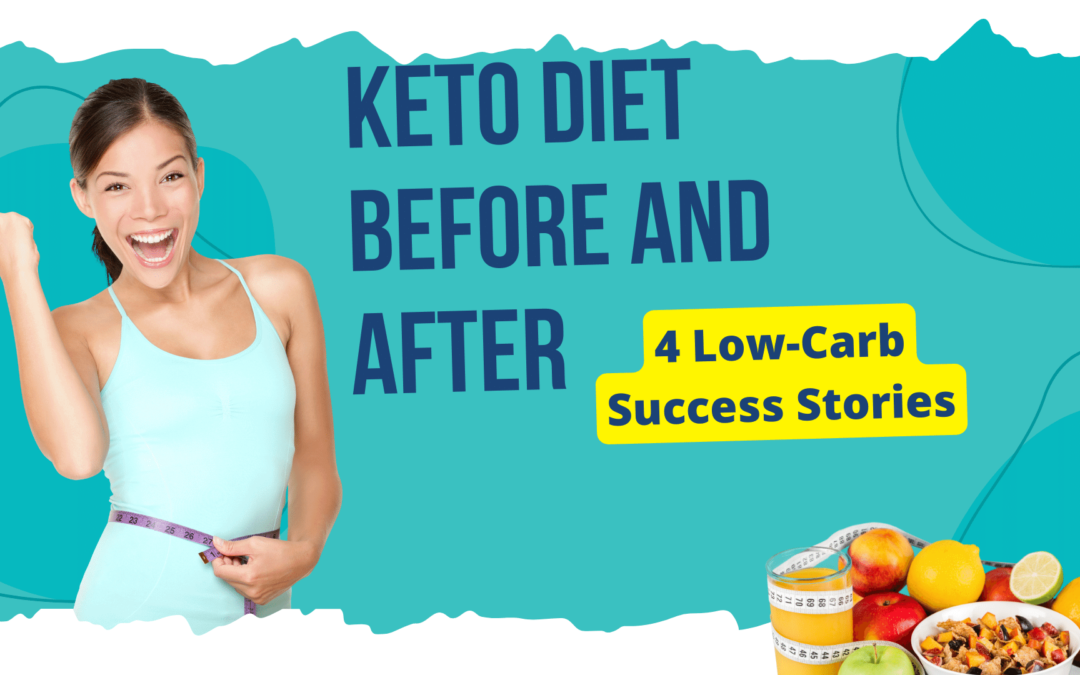Obesity and metabolic illnesses are serious public health issues across the world.
Obesity afflicted 13% of individuals worldwide in 2016. (1).
Obesity is a risk factor for metabolic syndrome, a collection of metabolic abnormalities that includes type 2 diabetes, high blood pressure, a large waist-to-hip ratio, and low HDL (good) cholesterol. (2, 3).
Many diets have arisen to fight this, including the ketogenic diet, in which a person takes minimal carbs. According to some studies, this diet may be beneficial to persons who are obese. (4).
However, other experts have questioned the keto diet’s health advantages and urged additional study. While it may aid in weight loss, it may also cause difficulties. (5, 6).
This article discusses how the keto diet may aid in weight loss and managing metabolic illness. It also highlights some of the potential disadvantages.

What is a ketogenic diet?
A ketogenic diet is rich in fat, low in carbohydrates, and moderate in protein. (6).
The body enters a metabolic condition known as ketosis, as carbohydrates are reduced, and fat is raised. The body then begins to convert lipids into ketones, chemicals that may provide energy to the brain. (6).
After a few days or weeks on such a diet, the body and brain become highly effective at burning fat and ketones for fuel rather than carbohydrates.
The ketogenic diet also decreases insulin levels, which can help with insulin sensitivity and blood sugar control. (7, 8).
A ketogenic diet’s staple items include:
- meat
- fish
- butter
- eggs
- cheese
- heavy cream
- oils
- nuts
- avocados
- seeds
- low carb vegetables
In contrast, almost all carb sources are avoided, including:
- grains
- rice
- beans
- potatoes
- sweets
- milk
- cereals
- fruits
- Some higher-carb vegetables
Ketogenic diets and weight loss
Ketogenic diets have been shown to aid in weight loss.
They may aid in fat loss, muscle preservation, and improving numerous disease signs. (9, 10, 11, 12).
Some studies have shown that a ketogenic diet may be more successful for weight reduction than a low-fat diet, even when total calorie consumption is the same. (11).
People on a ketogenic diet lost 2.2 times more weight than those on a low-calorie, low-fat diet in one earlier study. Triglyceride and HDL (good) cholesterol levels improved as well. (13).
However, both groups lowered their calorie intake by a comparable proportion, which may have enhanced weight loss. (13).
This graph (13) depicts expected weight loss outcomes:

Graph by Brehm BJ et al.
Another 2007 research compared a low-carb diet to the dietary advice of Diabetes UK. It was discovered that the low-carb group shed 15.2 pounds (6.9 kg), whereas the low-fat group only lost 4.6 pounds. (2.1 kg). The low-carb diet resulted in three times the weight loss over three months. (14).
However, the groups had no difference in HbA1c, ketone, or lipid levels. Additionally, individuals on a low-carb diet reduced their calorie consumption. Finally, no change in fat or protein consumption was found between the two groups. This is vital to remember if people are increasing their fat consumption as part of a keto diet.
However, there are competing explanations for these observations. Some experts claim that the outcomes are merely attributable to greater protein consumption, while others believe ketogenic diets have a particular “metabolic advantage.” (15, 16).
Other ketogenic diet research has discovered that the ketogenic diet may reduce hunger and food consumption. This is critical when transferring the study to a real-world environment. (17, 18).
If you despise tracking calories, the evidence shows that a ketogenic diet could fit you well. You don’t have to watch calories if you avoid specific items.
If you follow the keto diet, you must still read labels and keep track of your total grams of carbohydrates daily, necessitating careful food selection.
However, several studies described above had tiny sample sizes and only looked at the diet’s short-term effects.
More study is needed to discover how the diet may affect long-term weight reduction and whether weight is recovered once a regular diet is resumed.
How do ketogenic diets promote weight loss?
Here’s how ketogenic diets help you lose weight:
- Higher protein intake. Some ketogenic diets boost protein intake, which has several weight loss benefits. (15).
- Gluconeogenesis. For fuel, your body turns fat and protein into carbohydrates. This procedure may result in a significant increase in daily calorie expenditure. (19, 20).
- Suppresses appetite. Ketogenic diets aid in feeling full. Positive alterations in hunger hormones such as leptin and ghrelin support this. (21).
- They have improved insulin sensitivity. Ketogenic diets can significantly enhance insulin sensitivity, improving fuel use and metabolism. (22).
- They decreased fat storage. According to some studies, ketogenic diets may minimize lipogenesis, turning sugar into fat. (23). This is because excess carbohydrates are stored as fat. When carbohydrate consumption is low, fat is utilized for energy.
- They increased fat burning. Several studies have indicated that ketogenic diets may boost the fat you burn while at rest, doing everyday activities, and exercising, but more study is needed. (24, 25).
In these ways, a ketogenic diet can assist you in losing weight.
However, following the ketogenic diet must ensure you’re getting enough calories. Excessive calorie restriction may decrease your metabolism, making losing weight more difficult in the long run (26).
Some experts also point out that while the keto diet may result in short-term weight loss, it is unlikely to last. Sticking to the diet for an extended period is also challenging. (6).
A ketogenic diet and metabolic diseases
The term metabolic syndrome refers to five common risk factors for obesity, type 2 diabetes, and heart disease (2):
- blood pressure that is too high
- a sizeable waist-to-hip ratio (excess belly fat)
- LDL (bad) cholesterol levels are elevated.
- low HDL (good) cholesterol levels,
- elevated blood glucose levels
Dietary and lifestyle adjustments can reduce or eliminate many of these risk factors. (27).
Insulin is also involved in diabetes and metabolic disorders. Ketogenic diets are particularly successful in lowering insulin levels in persons with type 2 diabetes or prediabetes. (7, 8).
After only two weeks on a ketogenic diet, insulin sensitivity increased by 75%, and blood sugar plummeted from 7.5 mmol/l to 6.2 mmol/l. (28).
A 16-week research also discovered a 16% decrease in blood sugar levels. Furthermore, 7 of the 21 patients could discontinue their diabetes medication. (29).
Furthermore, several human and animal studies have suggested that the ketogenic diet can lower total cholesterol and triglyceride levels. (30).
However, most published research focuses on the ketogenic diet’s short-term effects.
Previous research shows that the ketogenic diet may harm heart health, particularly among youngsters. (31, 32).
Furthermore, while studies indicate that saturated fat consumption is not directly associated with an increased risk of heart disease, it may increase LDL (harmful) cholesterol levels, a risk factor for heart disease. (33).
Furthermore, numerous studies suggest that ingesting large amounts of specific fats may be linked to an increased risk of certain forms of cancer. (34, 35, 36).
As a result, further study is required to discover how the ketogenic diet may affect health and illness in the long run.
Impact on metabolic disease
Numerous reasons explain the ketogenic diet’s dramatic impact on metabolic disease indicators. These are some examples:
- Fewer carbs. A high-carbohydrate diet can consistently raise blood sugar and insulin levels, reducing the body’s capacity to utilize insulin properly. (9).
- It decreased insulin resistance. Insulin resistance can lead to inflammation, elevated triglyceride levels, and fat accumulation. (8).
- Ketone bodies. Ketone bodies, which are molecules created during ketosis, may aid in the prevention of certain illnesses such as cancer, Alzheimer’s, and epilepsy. (37, 38, 39).
- Inflammation. The ketogenic diet has been shown to significantly reduce chronic inflammation, which has been associated with metabolic syndrome and other disorders. (40, 41, 42).
- Fat loss. This diet encourages the reduction of body fat, particularly harmful belly fat. One of the criteria for metabolic illness is excess belly fat. (43).
- Restore normal insulin function. According to research, optimal insulin function can reduce inflammation, but poor insulin function can exacerbate it. (44).
As you can see, the combination of these elements significantly impacts health and illness prevention.
How to follow a ketogenic diet
Follow these basic guidelines if you wish to start a ketogenic diet:
- Eliminate carbs. Examine food labels and aim for 20 to 50 grams of carbohydrates daily or less. (8).
- Stock up on staples. Purchase meat, cheese, whole eggs, nuts, oils, avocados, oily fish, and cream since they are now required foods in your diet.
- Eat your veggies. Because fat sources are heavy in calories, stack your plate with low-carb veggies to help keep you feeling full. Veggies will also give fiber, which whole grains, beans, and legumes will no longer provide.
- Experiment. A ketogenic diet may still be pleasant and intriguing. You can also create ketogenic spaghetti, bread, muffins, brownies, puddings, ice cream, and other baked goods.
- Build a plan. It might be challenging to locate low carb meals on the road. As with any diet, having a plan and go-to snacks or meals is essential.
- Find what you love. Experiment until you discover your ideal keto diet.
- Track progress. Take photographs and measurements every 3 to 4 weeks, and weigh yourself. If your progress stalls, reconsider your daily consumption. Ensure you receive enough veggies at each meal and that your portions are reasonable.
- Replace fluids. Ensure you receive enough water and electrolytes, such as sodium, potassium, and magnesium.
- Be consistent. There is no quick fix for success. The most vital aspect of any diet is consistency.
You may also want to monitor ketone levels in urine or blood since they will tell you whether you’re maintaining carb levels low enough to achieve ketosis.
According to current research, investigations at my lab, and ongoing testing with customers, anything above 0.5-1.0 mmol/l indicates adequate nutritional ketosis. (45).
Before beginning this diet or using any supplements, consult your doctor or a dietician.
Should you try a ketogenic diet?
Individual metabolism, genes, body types, lifestyles, taste buds, and personal tastes differ. Therefore, no single diet is suited for everyone.
It may assist those who are obese or have a higher risk of developing metabolic syndrome, but it is not appropriate for everyone. For example, it is not suitable for those suffering from the following conditions (7):
- pancreatitis
- liver failure
- disorders of fat metabolism
- carnitine deficiency
- porphyrias
- pyruvate kinase deficiency
There could be some negative consequences. You may suffer flu-like symptoms when you first begin the diet, known as “keto flu.”
Poor energy and brain function, increased appetite, sleep difficulties, nausea, intestinal pain, and poor exercise performance are all possible symptoms.
Researchers need to conduct more long-term research to determine the specific long-term consequences. However, there may be a risk of renal or liver issues.
There is also a danger of dehydration, so drink lots of fluids, particularly water, while on this diet. (8).
Always consult a doctor before beginning a ketogenic diet to confirm that it is safe and appropriate.
A ketogenic diet is sometimes challenging to follow. If you cannot adhere to it but still want to follow a low carb diet, carb cycling or a conventional low carb diet may be a better alternative.
There may be better options than the ketogenic diet for competitive athletes or those looking to bulk up.
Furthermore, vegetarians and vegans may struggle with this diet due to the importance of meat, eggs, fish, and dairy.
The Bottom Line
To get the most out of a ketogenic diet, you must consume high-fat meals and limit your carbohydrate intake to less than 30-50 grams daily.
If you follow a ketogenic diet under medical supervision, you can reduce weight and improve your overall health.
It may lower your risk of type 2 diabetes, obesity, and other metabolic diseases.
Before beginning any new diet, please consult your doctor to ensure it fits well.







0 Comments